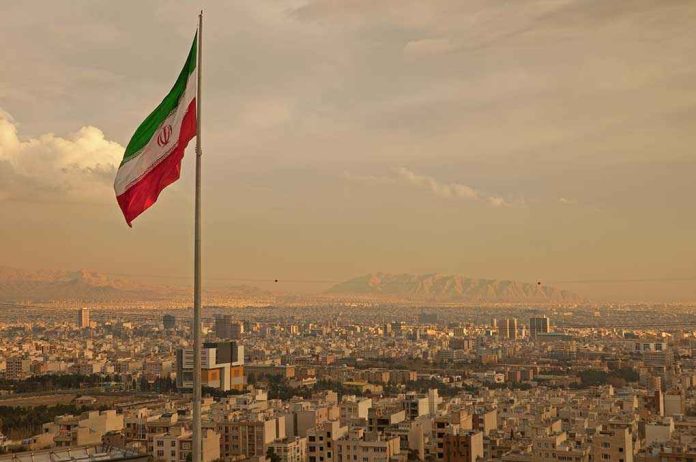
As Iran sends its surviving nuclear scientists into hiding after a wave of targeted killings, this unprecedented covert war raises serious alarms about regional escalation and the dangerous precedent of targeting scientists as combatants.
Story Snapshot
- Israel’s strikes in June 2025 killed over 30 Iranian nuclear researchers, crippling Iran’s nuclear program.
- Iran has relocated its remaining nuclear scientists to undisclosed locations, intensifying secrecy and fear.
- The assassinations mark an escalation in covert warfare, with direct threats to academic and scientific communities.
- This campaign has heightened regional tensions and set a troubling precedent for international conflict.
Targeted Killings Disrupt Iran’s Nuclear Program
During the June 2025 “12-Day War,” Israel launched precise strikes against Iran’s nuclear infrastructure, killing at least 11 nuclear scientists on the opening night alone and over 30 by the conflict’s end. These attacks were a calculated effort to dismantle Iran’s nuclear expertise by eliminating key personnel, rather than just striking at physical facilities. The loss of such a high number of experienced scientists in a matter of days represents a blow to Iran’s nuclear ambitions and dramatically alters the regional balance of power.
In the weeks following the conflict, Iranian authorities moved quickly to relocate the surviving nuclear scientists and their families to secure, undisclosed locations. Reports confirm that these specialists no longer teach or reside at their former universities, and faculty connected to the nuclear program have been systematically replaced. Israeli intelligence is believed to maintain a list of nearly 100 scientists considered potential targets, prompting heightened fear and secrecy throughout Iran’s scientific community.
Historical Patterns and Escalation
Iran’s nuclear program has long drawn the scrutiny of Israel and Western powers, who suspect military motives despite Iran’s denials. Since 2010, targeted assassinations of Iranian nuclear scientists—mostly attributed to Israeli intelligence—have aimed to slow Iran’s progress. The June 2025 campaign, however, stands out for its unprecedented scope and speed, shifting the covert war from isolated incidents to a systematic decapitation of Iran’s scientific leadership. This escalation has forced the Iranian regime into a defensive posture, raising the stakes for covert operations across the region.
Previous incidents, such as the assassinations of Majid Shahriari and Fereydoon Abbasi, set the stage for this year’s dramatic escalation. In response to mounting losses, Iran’s leadership faces internal and external pressure to protect its remaining expertise and demonstrate resilience in the face of foreign intervention. For Western and Israeli officials, the campaign has been framed as a necessary measure to prevent a nuclear-armed Iran and safeguard regional security.
Wider Impacts: Security, Precedent, and Instability
The immediate effect of the assassinations and subsequent relocations has been to severely disrupt Iran’s nuclear program. Operational delays, the loss of institutional knowledge, and widespread fear have crippled Iran’s ability to advance its nuclear ambitions in the short term. Longer term, experts warn of a generational gap in nuclear expertise and increased difficulty in recruiting and retaining scientific talent. The broader scientific and academic communities in Iran now operate under a climate of intimidation and risk, further undermining progress.
Strategically, this campaign sets a dangerous precedent: targeting scientists as combatants opens the door to future conflicts where intellectual capital becomes a primary target. The international community faces the risk of escalation, as Iran may seek to retaliate or adopt similar tactics against its adversaries. The destabilization extends beyond Iran, chilling international scientific collaboration and fostering a climate of suspicion and hostility in academic circles worldwide.
“Iran sends surviving nuclear scientists into hiding”
New generation to take over work of more than 30 researchers assassinated – but Israel describes them as “dead men walking”
-telegraph
169804 AE7815 pic.twitter.com/ZW8ngMDZjl— Oceanner (@Oceanworldfree) August 9, 2025
Iranian officials continue to vow that their nuclear program will recover, but acknowledge the significant gap left by the assassinated scientists. Western analysts and institutes, such as the Institute for Science and International Security, have noted that restoring such expertise will take years. The region now faces heightened instability, as both sides reassess the boundaries of covert warfare and the protection of critical national assets.
Sources:
Assassinations of Iranian nuclear scientists – Wikipedia
Iran nuclear experts in hiding after Israel kills more than 30 – The Telegraph
Iran hides surviving nuclear scientists after Israel war – The Jerusalem Post


